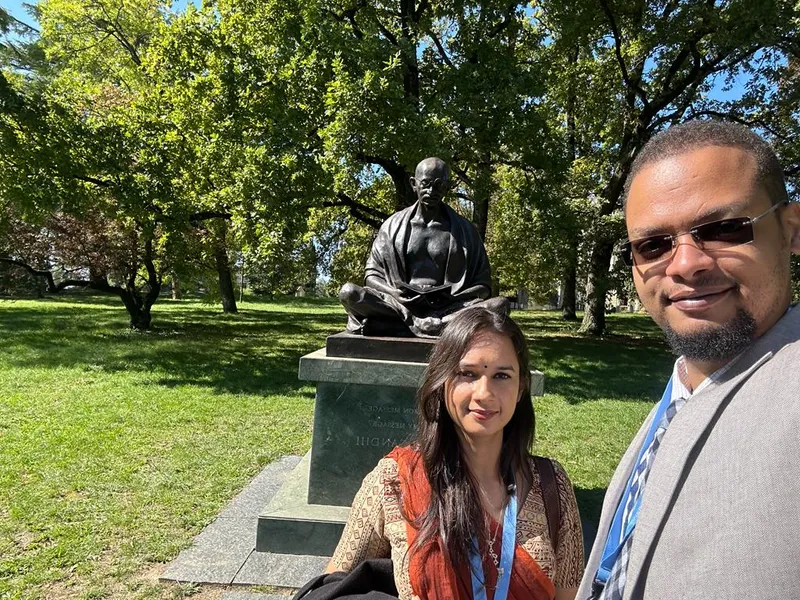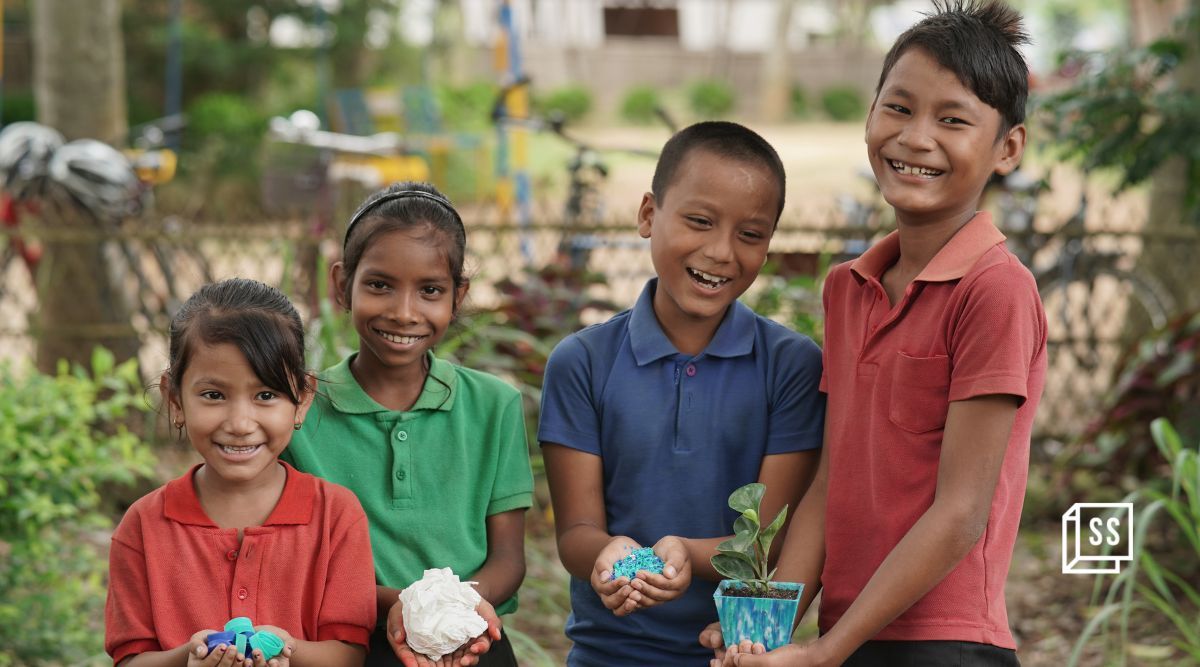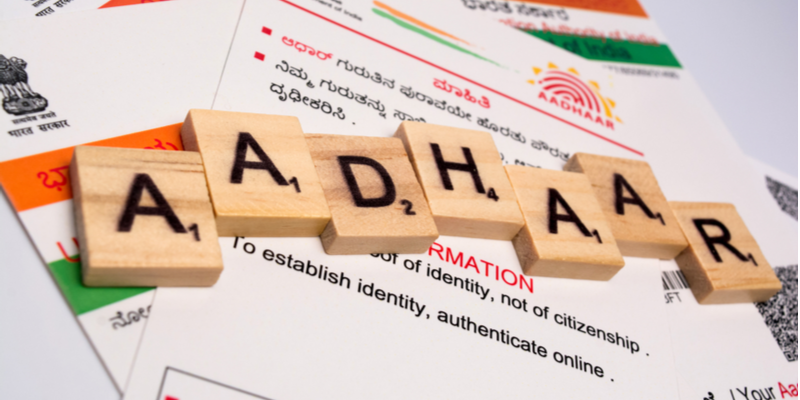A school in Assam is providing education in exchange for plastic waste
Started by Parmita Sarma and Mazin Mukhtar in 2016, the Akshar school collects dry plastic wastes as a fee and provides vocational skill training in landscaping, plastic recycling, tailoring, and carpentry.
Every Thursday, students of the Akshar School in Guwahati, Assam come bearing bags of plastic waste including discarded bottles and wrappers.
In exchange for this dry plastic waste, the school offers them free education. Further to put the discarded plastic into use, students are taught to recycle it for small construction projects like eco-bricks, plant guards and other products. So far the school has collected and recycled about 1,200 bottles and more than 640,000 plastic wrappers.
Started by Parmita Sarma and Mazin Mukhtar in 2016, the Akshar School is now functional at its full capacity of 110 students.
“We had a recycling centre and we urged parents to send some plastic waste so we could process it but no one sent it. The local villagers continued to burn their plastic waste. The toxic fumes released from the waste would waft into our classrooms and loom over the neighbourhood. A few months ago, we decided to implement a 'plastic waste fee' to encourage parents and children to responsibly manage and dispose of plastic waste,” Mukhtar tells SocialStory.
Mukhtar was working with an NGO in the education sector in New York. In 2013, he visited India to work with Bhupen Hazarika, Assam’s legendary singer and social worker, and it was then he met his now wife Parmita Sarma.

Parmita Sarma and Mazin Mukhtar
Sarma, on the other hand, was born in Mumbai and was raised in Guwahati. After completing her master’s in social work, she decided to work in the field of education.
In 2013, the duo saw a common spark of eventually starting up a school that helps underprivileged children get access to quality education. This led to the establishment of the NGO–Akshar Foundation.
In 2015, Mukhtar shifted to India and a year after they together started the Akshar school.
“We aimed to break the cycle of poverty and instil environmental awareness in the next generation from poor areas,” he says.
Learning by doing
The school does not follow the CBSE or ICSE board curriculum instead it follows the NIOS (National Institute of Open Schooling) educational system.
“It is advantageous as the students have flexibility and can learn more in terms of life skills which ensures better employability opportunities,” Mukhtar says.
"These students come from underprivileged backgrounds, which often leads them to choose daily wage work over attending school," Mukhtar continues.
Therefore the founders decided to bring a peer-to-peer teaching programme. Currently, the school has six teachers. However, through this programme, teenagers are trained and employed as teachers or coaches for younger students, under the supervision of a senior teacher.
These senior students are paid for teaching in points, which they can redeem from the school in exchange for food, clothes, sports equipment, hygiene products, or school supplies. “For example, 30 points represent Rs 30. These points are spent solely on the child’s needs,” he adds.
The school is based on the ancient Indian Education Model, Mahatma Gandhi advocated for– "Nai Talim", whereby all academics would be linked to practical crafts, to promote entrepreneurship and self-sufficiency, the founder says.
At the school, students are provided with 1-2 hours of daily vocational training courses, including tailoring, carpentry, landscaping, recycling, first-aid and animal care, electrician, and more.
"We have professionals who come to the school to teach these courses to the children. Once the children complete their education, they have the opportunity to engage in apprenticeships with these professionals," he adds.
"At Akshar School, we assess students' aptitude through tests and place them in grade levels that align with their abilities. For instance, if a student excels in a higher standard math, they will study at that level. However, if they are more comfortable with basic science, their focus will be on that subject. Further these children take NIOS exams to get the certificate, post which they can go for college or start working," he further explains.
He says that this type of education system provides an opportunity for older students who couldn’t attend school earlier, due to poor financial conditions, to learn at their own pace.
These students are also taught basic first-aid, and treating the basic maladies of local animals, especially dogs. Students also participate in growing food crops for school meals selling in a farmer's market stall, and planting trees. Students also maintain the solar power plant.
The school also has a recycling plant in camps. They pay weekly "plastic school fees" for waste plastic from their homes, and work in the plant to create new products from waste plastic, including eco-bricks for construction, as well as dog bowls, flower planters, clipboards, and jewellery.
“We cannot process all types of plastic so we use the kind we can and the rest we ship to other recycling companies,” Mukhtar informs.

Piyush, a 13-year-old joined the school in 2020. He says that the curriculum in the school is very different as compared to his previous school.
“Here we are taught subjects like—business education, maths, geography and more after which we are also given vocational training,” he says continuing, "The school prioritises our holistic development, boasting a flexible system and fostering a friendly environment.”
Recently the foundation has tied up with private schools to collect plastic from them. So far they have successfully collected 1 tonne of plastic waste from 12 such schools in a month. He further wishes to expand this educational model to other schools as well.
“This education system is providing a holistic development of children with its learning hands on approach while working towards sustainable development as well,” he adds.
Edited by Affirunisa Kankudti











